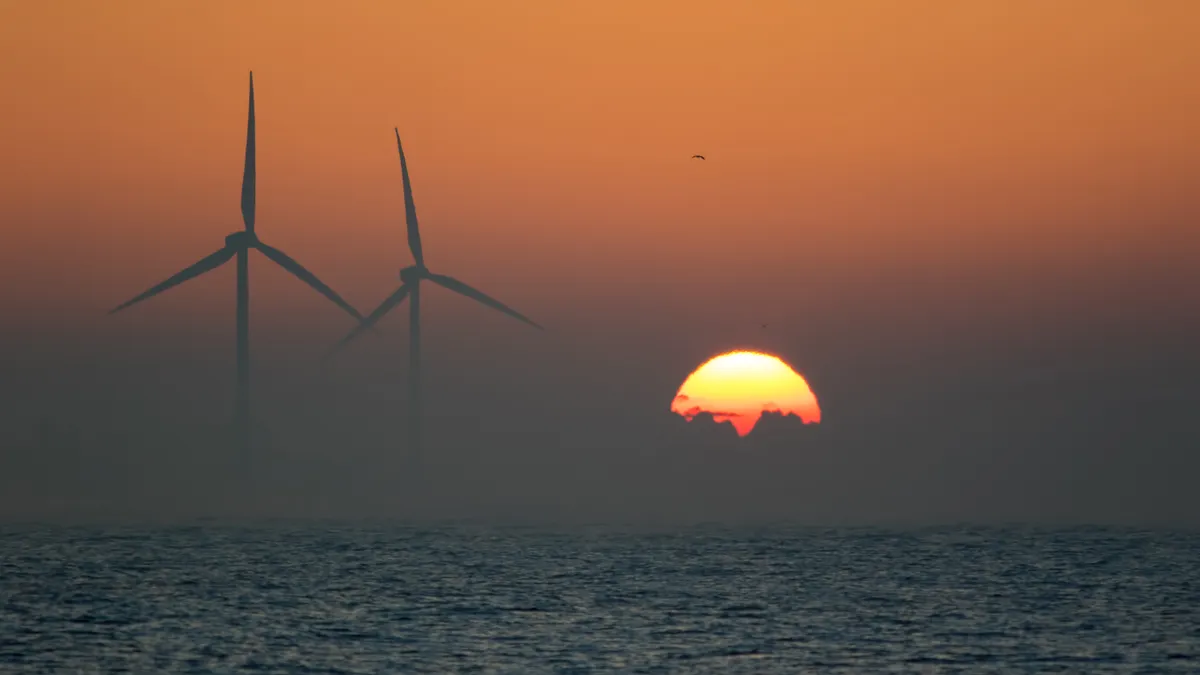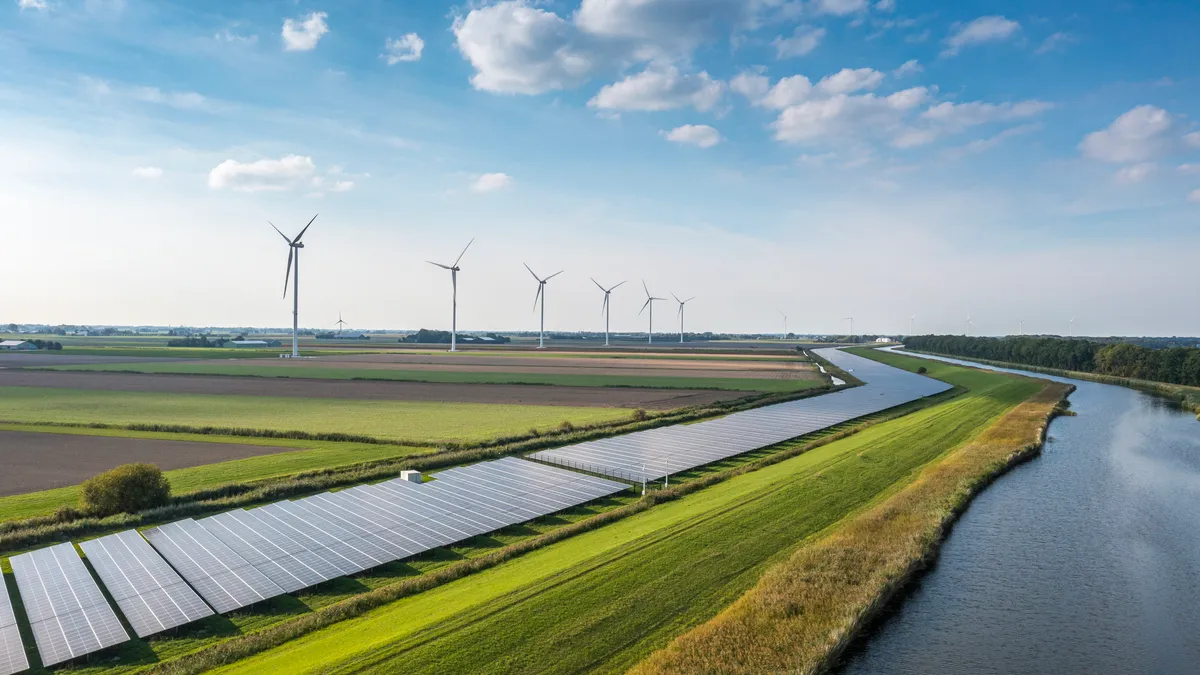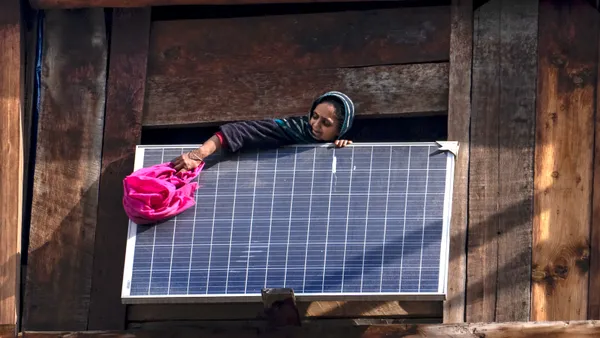Dive Brief:
- President-elect Donald Trump said in September that he “will terminate” the Inflation Reduction Act and said at a May rally that he would issue an executive order to “make sure that [offshore wind] ends on day one,” indicating a potential significant shift from President Joe Biden’s energy policies.
- However, the clean energy tax incentives included in the IRA would bolster two of the goals laid out in Trump’s platform – energy independence and the onshoring of manufacturing – said Harry Godfrey, who leads Advanced Energy United’s federal investment and manufacturing working group.
- “Trump's [first term] approach on China, I think, shifted where the center of American policy is now when it comes to .... geostrategic economic approaches,” Godfrey said, adding that industrial policy like the IRA flowed from this shift and therefore has a place in a second Trump term.
Dive Insight:
According to Godfrey, the attitude shift kicked off by Trump during his first term was one that questioned the free trade agreements and global supply chains of past decades and instead began to ask, “What do we want to build here? What industries do we need to have a firm hold on, with control of our industrial base .... who are we able to work with?”
“It starts from, ‘what are we doing to protect ourselves, to maintain our strategic and economic edge?’” he said. “I think the industrial policy flows from this change that Donald Trump anticipates, and in some ways, catalyzes. So I think there's a place for that industrial policy .... to continue and grow under a Trump administration.”
Republicans won control of the Senate in the next session of Congress, while control of the House remains up for grabs, leaving it currently unclear whether or not the party will have a trifecta at its disposal or be dealing with a divided Congress next year.
“[Control of the House is] neck and neck,” Godfrey said. “It will be close, and it will be close for a while.”
Some offshore wind companies’ stocks dropped following Trump’s victory – Ørsted and Vestas both saw their share price drop by around 14% by late Wednesday morning. In 2023, Trump had celebrated the cancelation of Ørsted’s Ocean Wind 1 and 2 projects offshore New Jersey in a Truth Social post, calling the projects “horrendous …. [monstrosities]” which “required massive government subsidies, and ultimately, just didn’t work” according to The Hill.
Oceantic Network President and CEO Liz Burdock congratulated Trump on his “historical political comeback” in a Wednesday release, noting that eight years ago, the first Trump administration “laid out the fundamental framework for our modern offshore wind industry and oversaw seven federal lease sales that netted $456 million for the federal treasury. Industry responded by making the first supply chain investments that are now creating jobs in Texas and South Carolina,” she said.
Even in the event of a trifecta, analysts including Godfrey have said it’s doubtful that Republicans would be able to fully repeal the IRA. Many projects benefiting from the law’s tax credits have already broken ground in Republican-controlled districts, prompting a group of 18 lawmakers to send a letter to Speaker Mike Johnson, R-La., in August, urging him to prioritize “business and market certainty” when it comes to IRA reform.
Republicans and their districts “have benefited mightily from investments incentivized in part by IRA and the infrastructure law,” Tyson Slocum, director of Public Citizen's energy program, said in a Wednesday email. “So there may be cuts here and there, but I don't think it will be a big hit to the pace of renewable deployment we've been seeing and will continue to see.”
Bob Keefe, executive director of environmental and economic advocacy group E2, urged Trump in a Wednesday release to “continue making America more competitive, rebuilding our manufacturing industry and strengthening our economy.”
“Now is the time to put politics and partisanship aside, and work together to continue building on the record clean energy investments, jobs and economic opportunities flowing to Republican and Democratic states alike,” Keefe said.
Trump also ran on a platform of ending inflation and lowering prices, and Godfrey noted that the cheap electricity provided by renewable energy projects – offshore wind in particular – could help lower consumer energy bills, which are a “really significant inflationary driver.”
“We do absolutely see that once offshore wind assets are in place and up and running, they have a host of advantages — a large source of clean, sustainable, incredibly low cost energy, with minimal volatility, and better able to be located near load centers in large quantities,” he said.
In general, aspects of the IRA that address “energy efficiency, demand response, transmission, as well as low-cost generation” are helpful for combating inflated energy prices, Godfrey said.




















